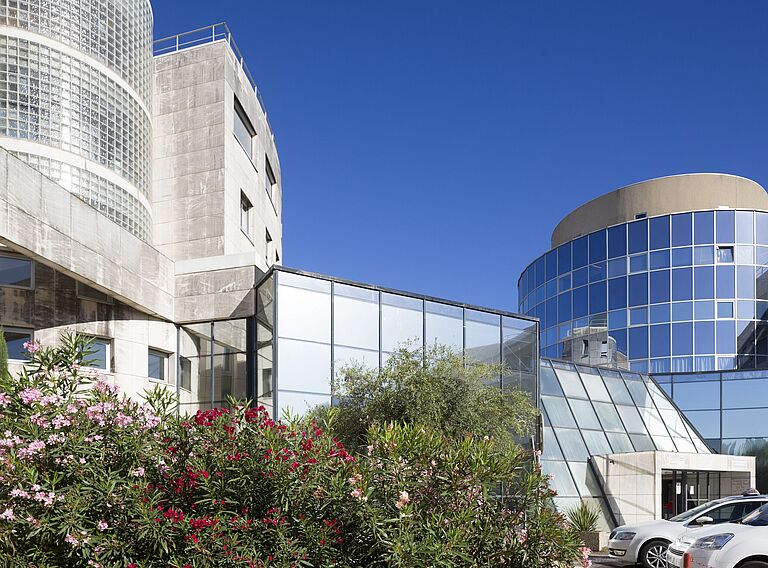History
1000 ans d'histoire
Lapeyronie, Saint Eloi, Gui de Chauliac, Arnaud de Villeneuve... so many illustrious names, which resonate today, in the ears of the Montpellierains, as places where they practice a medicine of excellence, to which they are deeply attached.
Writing the history of Montpellier's hospitals is first and foremost writing the history of the city and its inhabitants.
Medieval hospitals were born in a commercial city and respond to the need to treat the many pilgrims on the way to Santiago de Compostela, Rome or Jerusalem, but also to filter them and prevent them from causing public disorder or spreading terrible epidemics.
The wars of religion led to the destruction of many hospitals, often of Catholic origin, and the repatriation to the city center of the most important of them, the Saint Eloi Hospital.
During the revolution, hospital power passed into the hands of the municipality. The Faculty of Medicine is responsible for the governance of major medical and surgical clinics, which are places where medical care and education take place.
This close collaboration between universities and hospitals culminated in the creation of the University Hospital Centers (CHU) in 1958.
At the beginning of the 21st century, University Hospital Centers (UHCs) became huge companies
directly under the control of the State, the privileged instruments of a public health policy.
Excerpts from: MONTPELLIER HOSPITALS A THOUSAND YEARS OF HISTORY
by Robert DUMAS and with the collaboration of Marie-Sylvie GRANDJOUAN and Bernard BARRAL
Released October 23, 2012 by Sauramps (ISBN 978284040238508)
